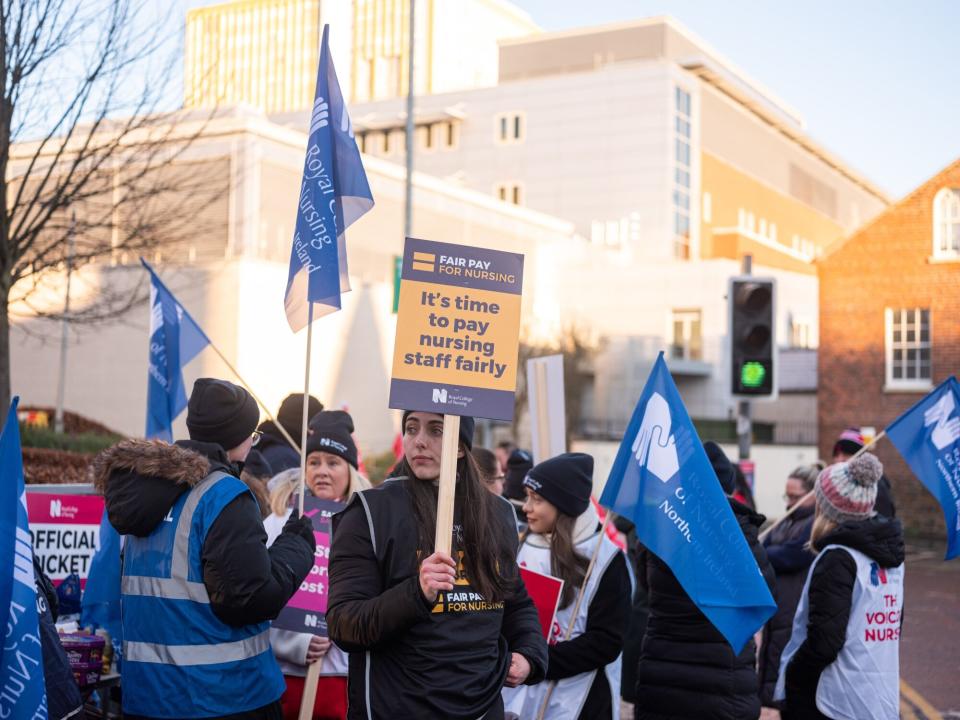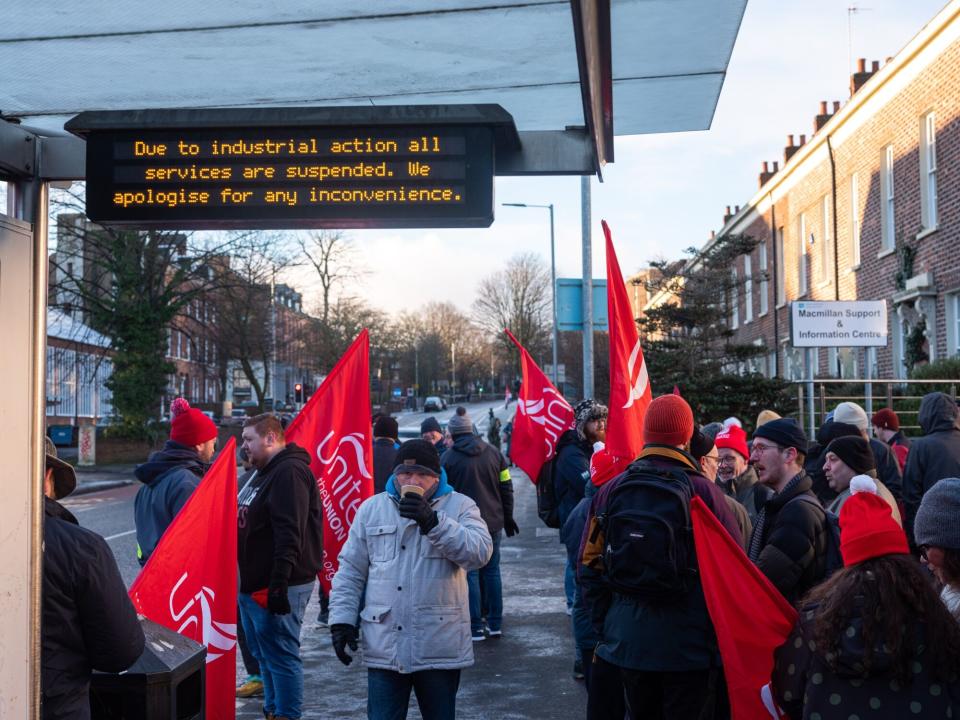Northern Ireland Hit by Mass Strike Amid Political Deadlock
(Bloomberg) -- Public workers in Northern Ireland are taking part in a mass one-day strike to protest over public sector pay, a move expected to bring widespread disruption to the region.
Most Read from Bloomberg
YouTube and Spotify Won’t Launch Apple Vision Pro Apps, Joining Netflix
Blinken’s Return From Davos Was Delayed After Plane Broke Down
Airstrikes on Yemen Bring New Level of Chaos to Shipping in the Southern Red Sea
As many as 170,000 workers from 17 unions — including public transport staff, nurses, civil servants and teachers — will walk out Thursday in a coordinated action billed by unions as Northern Ireland’s biggest strike in over 50 years. Workers are calling for pay increases to bring their incomes into line with the rest of the UK.
The strike has had a huge impact on activity, with buses and trains halted, schools closed and health services disrupted. The Department of Health posted on the social media platform X that “all aspects of health and social care are impacted and there will be delays for those seeking treatment.”
The dispute has also become tangled up in the long-running political deadlock in Northern Ireland. The region hasn’t had a functioning devolved government since early 2022, when the Democratic Unionist Party withdrew from the power-sharing executive over a post-Brexit trade deal that they say undermines their position within the UK.
Northern Ireland Secretary Chris Heaton-Harris late last year announced a £3 billion funding package, which includes money for public-sector pay, but it will only be released if the executive at Stormont is restored.
Westminster is currently responsible for setting the Northern Ireland budget and departments are running a shortfall. The Northern Ireland Fiscal Council estimates a cash deficit of £1.2 billion ($1.5 billion) by 2025.
Economic Impact
Unions say that working conditions and essential services have been undermined by the funding gap, and they have called on Heaton-Harris to release funds.
There are also long-term economic repercussions from the lack of a local executive, according to Gareth Hetherington, Director of the Economic Policy Centre at the University of Ulster.
“Local political representation is required to make the major strategic policy decisions around prioritizing spending, for example on major capital and infrastructure projects and also implementing much-needed public sector reform,” he said.
On Thursday, workers took to the picket lines despite freezing temperatures and icy conditions as part of the mass walkout.
“It’s unfair that it is seen as acceptable that we are behind our counterparts in the UK so we need to come out and make a stand,” said Stephanie Heasley, a physiotherapy assistant and representative for the Chartered Society of Physiotherapy, outside Belfast City Hospital.
“We have staff who are having to avail of food banks, are living month to month, single parent families who are struggling. We have staff who are taking on extra jobs and are looking for jobs elsewhere.”
The strike coincides with a fresh political deadline for the Northern Ireland executive. If that’s missed, Heaton-Harris is required to either call an election or extend the deadline.
The DUP on Wednesday refused to lift its boycott ahead of the strike after Sinn Fein, backed by the Social Democratic and Labour Party and the Alliance Party, had sought to recall the assembly.
“If we look over the last five or six year periods, the executive has not been sitting for a significant period of time,” Hetherington said. “There have been several opportunities to to make strategic decisions some time ago that we would see the benefit of now and that’s not happening.”
(Updates with comments on economic impact starting in seventh paragraph.)
Most Read from Bloomberg Businessweek
©2024 Bloomberg L.P.

 Yahoo News
Yahoo News 


